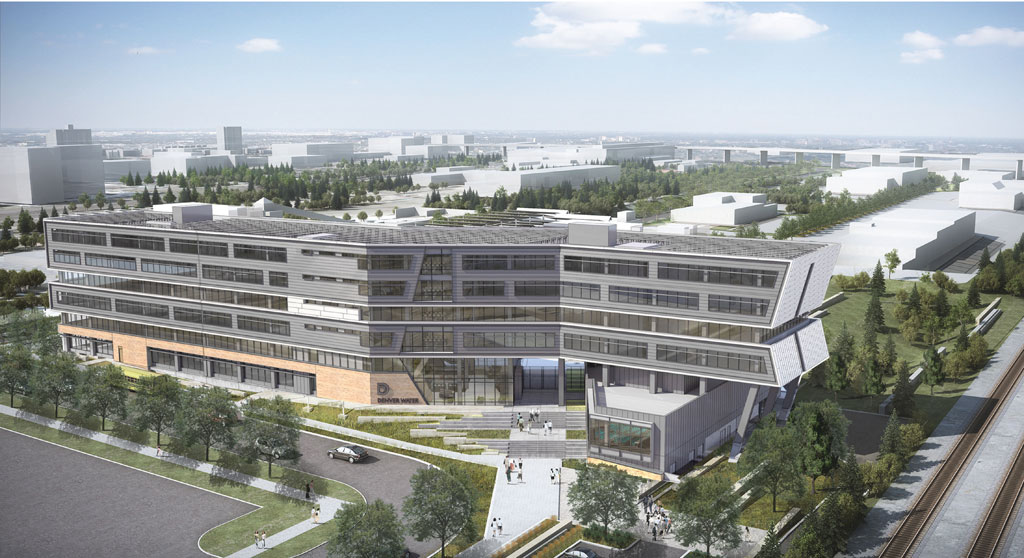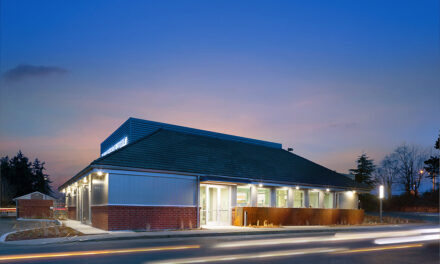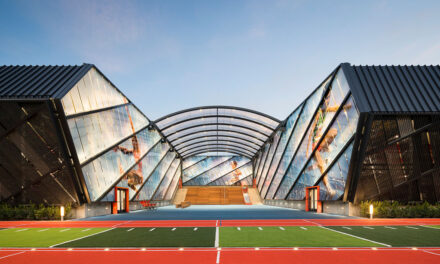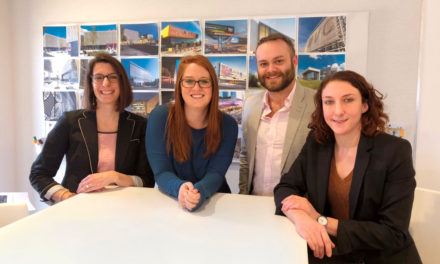Stantec leads sustainably-designed, multiphase complex modernization project
Denver Water, Colorado’s oldest and largest water utility, celebrated a major milestone on Nov. 9, as it held its official “topping out” ceremony for its new administration building, part of the public agency’s modernization of its 36-acre complex. Global architecture, engineering and design firm, Stantec, is providing master planning, architecture, interior design, landscape architecture, lighting design, and sustainable design on the comprehensive, multi-phase project.
The complex modernization project features a new 190,000-square-foot, innovative and highly-sustainable administration building, as well as a large operations site linking seven other completely new facilities including new warehouse and fleet buildings completed in 2017. The site anticipates solar panels atop a new parking structure that features electric vehicle charging stations, a wellness building, and a renovated conference and training center adapted from a 132-year-old stone pumping station.
The administrative building is targeting LEED-NC Platinum certification and Net Zero Energy. Sustainable features include a radiant slab powered by the complex’s central utility plant to conserve heat and energy; raised access flooring; a high-efficiency triple pane glazed window system for maximum daylighting and energy savings; biophilic design; fitness options and healthy dining.
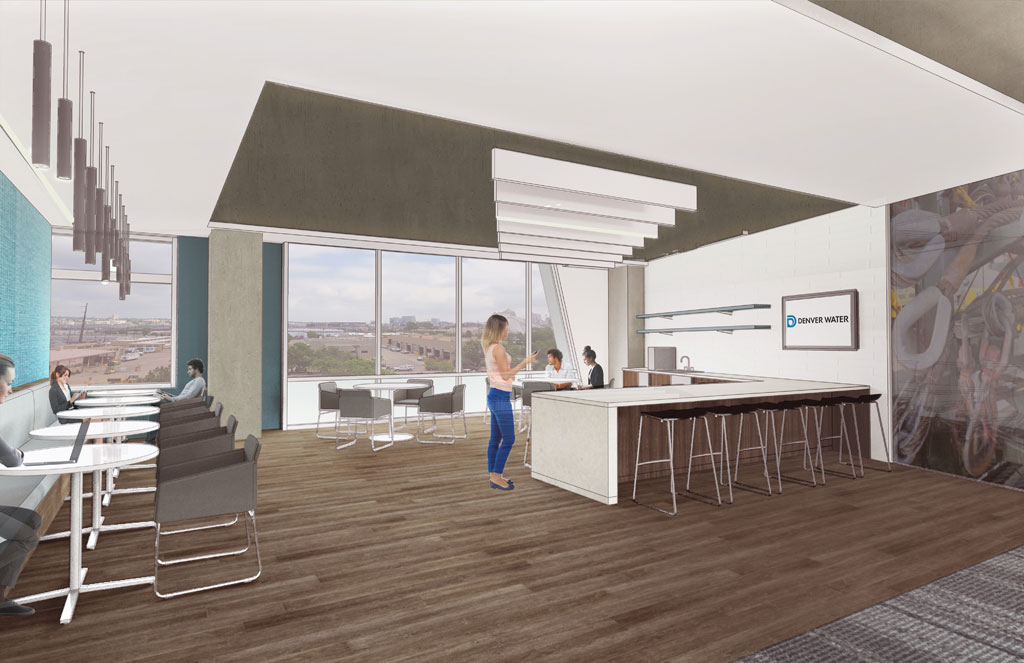
The new complex also supports the ‘One Water’ initiative which capitalizes on Denver Water’s unique expertise to showcase several cutting-edge strategies to capture and reuse both site and building water, including the capture, treatment and reuse of rainwater to irrigate landscape on the site. A water recycling system—the first of its kind in Colorado — will be featured in the lobby of the administration building that will recycle the facility’s grey and black water for irrigation and toilet flushing. The water recycling system is at the forefront of Denver Water’s commitment to the future conservation of water.
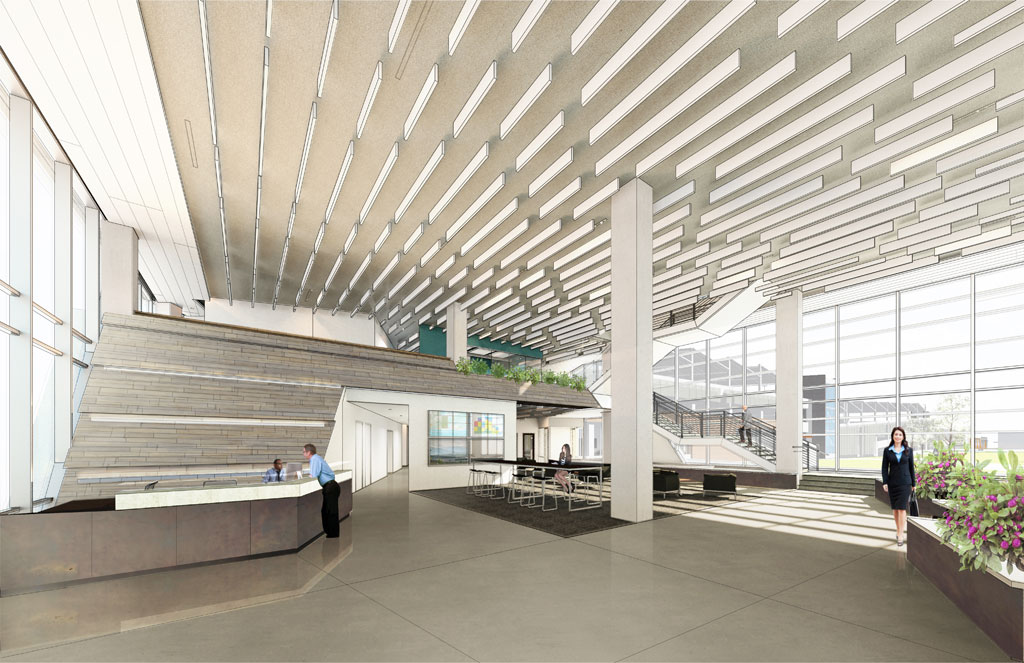
“We are thrilled to celebrate this major milestone in collaboration with our partners Denver Water and Mortenson Construction,” said Josh Gould, Stantec’s Denver-based Vice President, Buildings. “We designed this complex to shine a spotlight on Denver Water’s environmental stewardship initiatives, and we view this as a legacy project that closely aligns with our commitment to designing with community in mind. Our vision is a highly-visible and highly-sustainable complex that will enable Denver Water to serve its more than 1 million residents for the next 50 to 100 years.”
“We anticipate this being the most sustainable large complex that’s ever been built in Colorado,” said Denver Water CEO/Manager Jim Lochhead. “We are a water resource manager, and we understand we have a tremendous responsibility to our customers, to our community and to the environment. This is one of many projects we’re working on that we believe will create a resilient future for everyone concerned.”
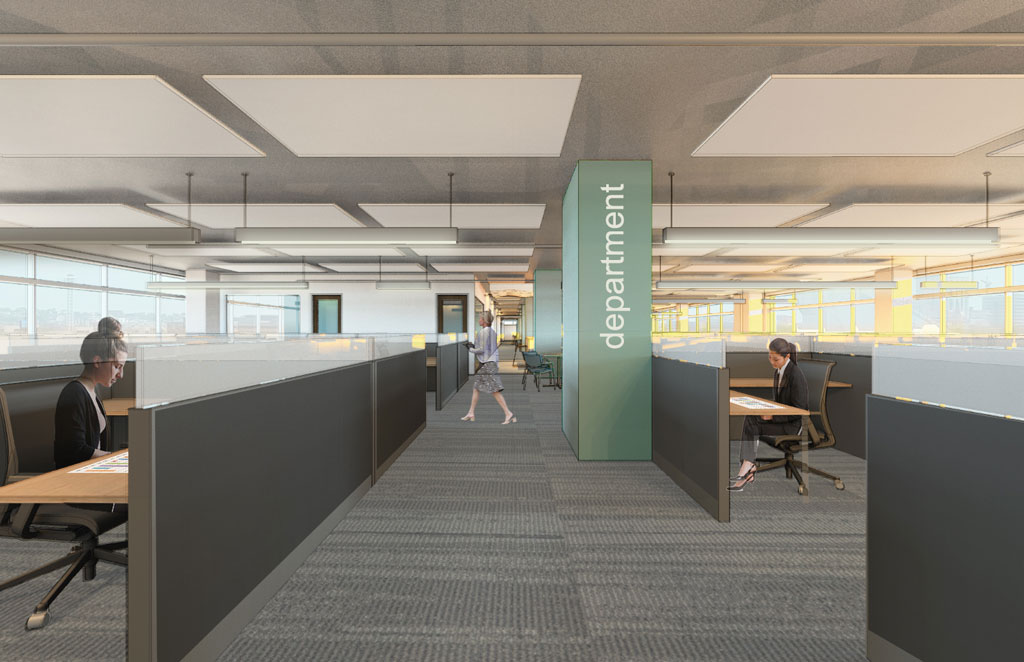
Denver Water is the largest water provider in Colorado, collecting, treating and distributing drinking water to 1.4 million people in Denver and its many surrounding suburbs. Its central administration building southeast of downtown Denver was outdated, inefficient and inadequate to support the future demands of providing water service to the community.

